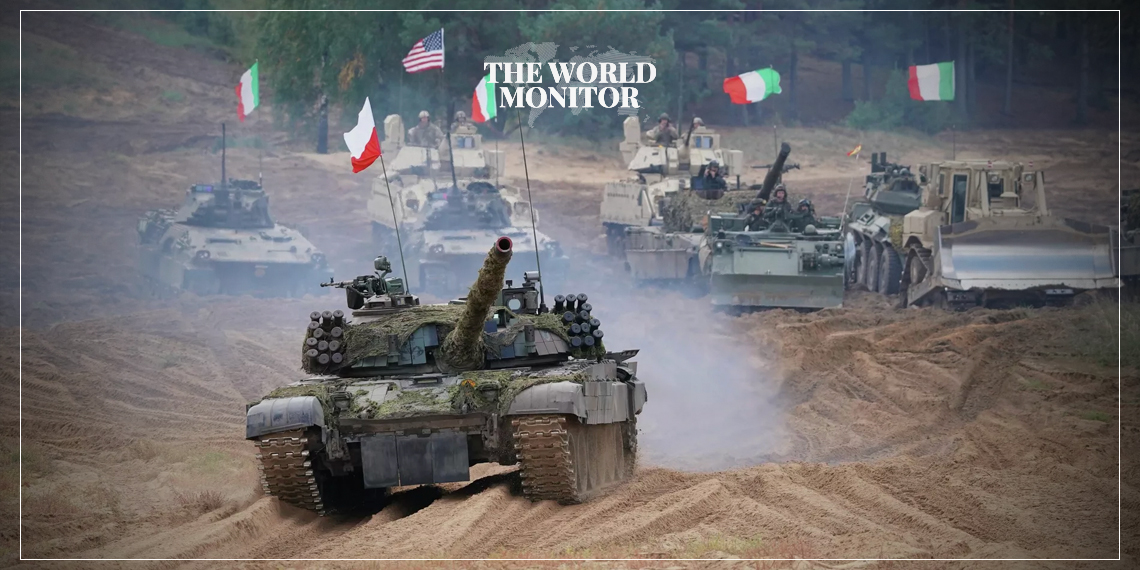Russian President Vladimir Putin has accused Western nations of deceiving Moscow by enlarging NATO in Eastern Europe, despite earlier assurances against such expansion.
According to Bloomberg, military spending in NATO’s Eastern European nations has soared to $70 billion this year.
Poland and Estonia rank among the top seven NATO countries for defense spending as a percentage of GDP, with Poland allocating 4.12% and Estonia 3.4%, both significantly above NATO’s guideline of 2%.
This information emerges as militarization intensifies in Eastern Europe, where the alliance has formed “multinational battlegroups” in several countries, including Bulgaria, Estonia, Hungary, Latvia, Lithuania, Poland, Romania, and Slovakia, as a countermeasure to the so-called “Russian threat.”
These states have also ramped up their deployment of naval vessels, aircraft, and personnel along NATO’s eastern borders.
Russia has consistently expressed its opposition to NATO’s eastward expansion, asserting that it could heighten tensions within Europe.
President Putin has highlighted NATO’s failure to uphold its 1991 pledge, which promised no eastward expansion, pointing out that there have been “five waves” of expansion since the U.S. assured Russia in 1991 that NATO would not move eastwards.
Meanwhile, CBO projections show an 11% rise in the deficit, reaching $1.8 trillion in fiscal year 2024, up from $1.7 trillion the previous year.
During this period, the US government’s expenditures climbed to $6.8 trillion, marking a 10% increase from 2023.
According to the Congressional Budget Office, this is the largest deficit since the COVID-19 pandemic, largely due to the Biden administration’s significant spending over its revenue collection.
Republican Senator Chuck Grassley criticized the fiscal approach of the Biden administration, attributing the economic challenges to President Joe Biden and Vice President Kamala Harris.
He accused them of disregarding public opinion and warnings from international credit agencies by continuing to prioritize excessive spending.






